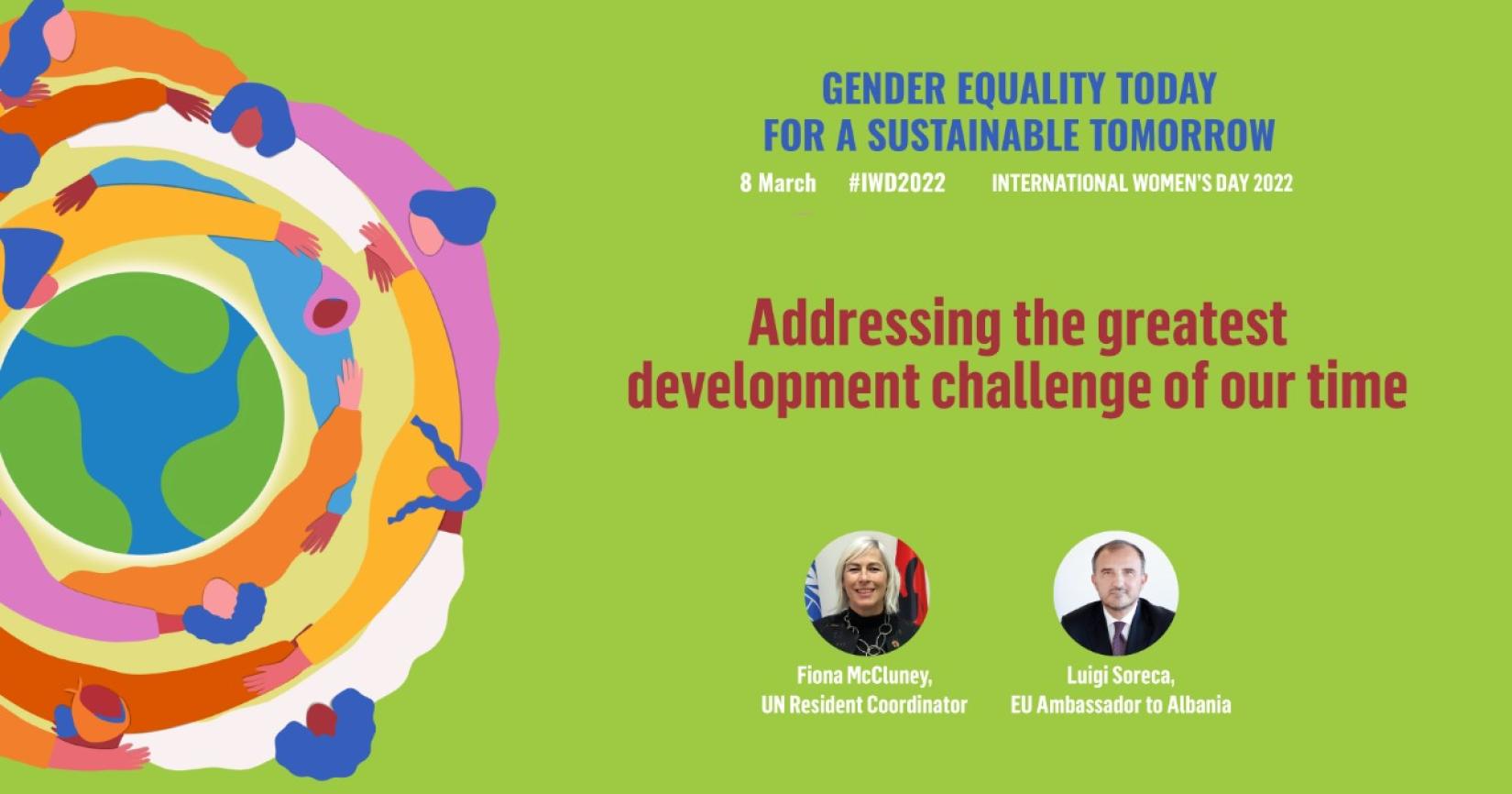Addressing the greatest development challenge of our time
07 March 2022
OpEd by
Fiona McCluney, UN Resident Coordinator
Luigi Soreca, EU Ambassador to Albania

Globally, it has been recognized that gender inequality, coupled with climate change and environmental crisis, is one of the greatest sustainable development challenges of our time. Violent conflict dramatically adds to that challenge, as we are seeing these days in Ukraine, with thousands of women forced to leave everything behind, fleeing the insanity of war.
And yet, while we know well the disproportionate price women pay in times of war, there is a wide spread assumption that climate change is “gender neutral”, and we continue to witness low engagement of women in decision making. But, the global climate crisis is not “gender neutral”. Women and girls’ rights, priorities and needs are systematically overlooked by climate, environmental, and disaster risk policies and programmes. Their survival rates are lower in disasters, their access to relief decreases, and gender-based violence grows, at home, at work, and in public spaces – as revealed by the shadow pandemic during the COVID-19 crisis.
This year’s theme for International Women’s Day “Gender equality today for a sustainable tomorrow” provides an opportunity to celebrate the women and girls around the world who are at the forefront of climate change and environmental justice. It also forces all of us to double down on achieving substantive equality between men and women across all sectors of Albania’s society.
The lingering effects of the 2019 earthquake are placing women economic empowerment at risk of stagnation, because women are often involved in traditional, unpaid or low-paid jobs. Deeply rooted challenges in accessing land and other productive assets exacerbate gender economic inequalities.
The UN family and the EU are working closely together to support the communities most heavily affected by the earthquake and ensure a successful and sustainable recovery for all.
Without a doubt, as part of its EU accession agenda, Albania made considerable progress to align its legal framework on climate change and gender equality to the EU acquis and international standards. Key strategies were developed to address environmental and climate change challenges. The new National Strategy for Gender Equality for Albania includes - for the first time - a strong emphasis on emergencies and disaster risk prevention, while national commitments on climate change feature references to gender equality. And in just few days, the country will participate in the UN Commission on the Status of Women that will specifically review global progress on expanding women’s agency on climate, environmental and disaster risk reduction.
Studies show that natural disasters mostly affect economies dependent on agricultural production. In Albania, agriculture accounts for 18% of GDP, employing 40% of the workforce. Because Albanian women mostly work the land informally or without pay, they are particularly vulnerable to the effects of climate change. Albania needs to make gender equality and the empowerment of women a lived reality of its environmental and climate-related action. To do that, it needs to boost capacities at national and local levels, step up coordination across institutions and partners, and strengthen sex-disaggregated data to measure the differential impact of climate change and disaster. It also requires bold steps to overcome gender stereotypes that limit women participation in innovation, digitalization and the green economy.
Women and girls from around the world are driving climate action. Their voices must be amplified and carefully listened to, also in Albania. We need to strengthen their skills to build resilience in the face of climate change and disaster, supporting their meaningful participation and involvement as decision makers.
On International Women’s Day, let us not forget women and girls who are raising their voices. Echoing the words of Albanian environmental justice activist Rea Nepravishta ‘We hope to see women and men, boys and girls working hand-in-hand to create a world based on care for each other and for the earth, rather than exploitation. This is, we believe, the door to a better future.’





